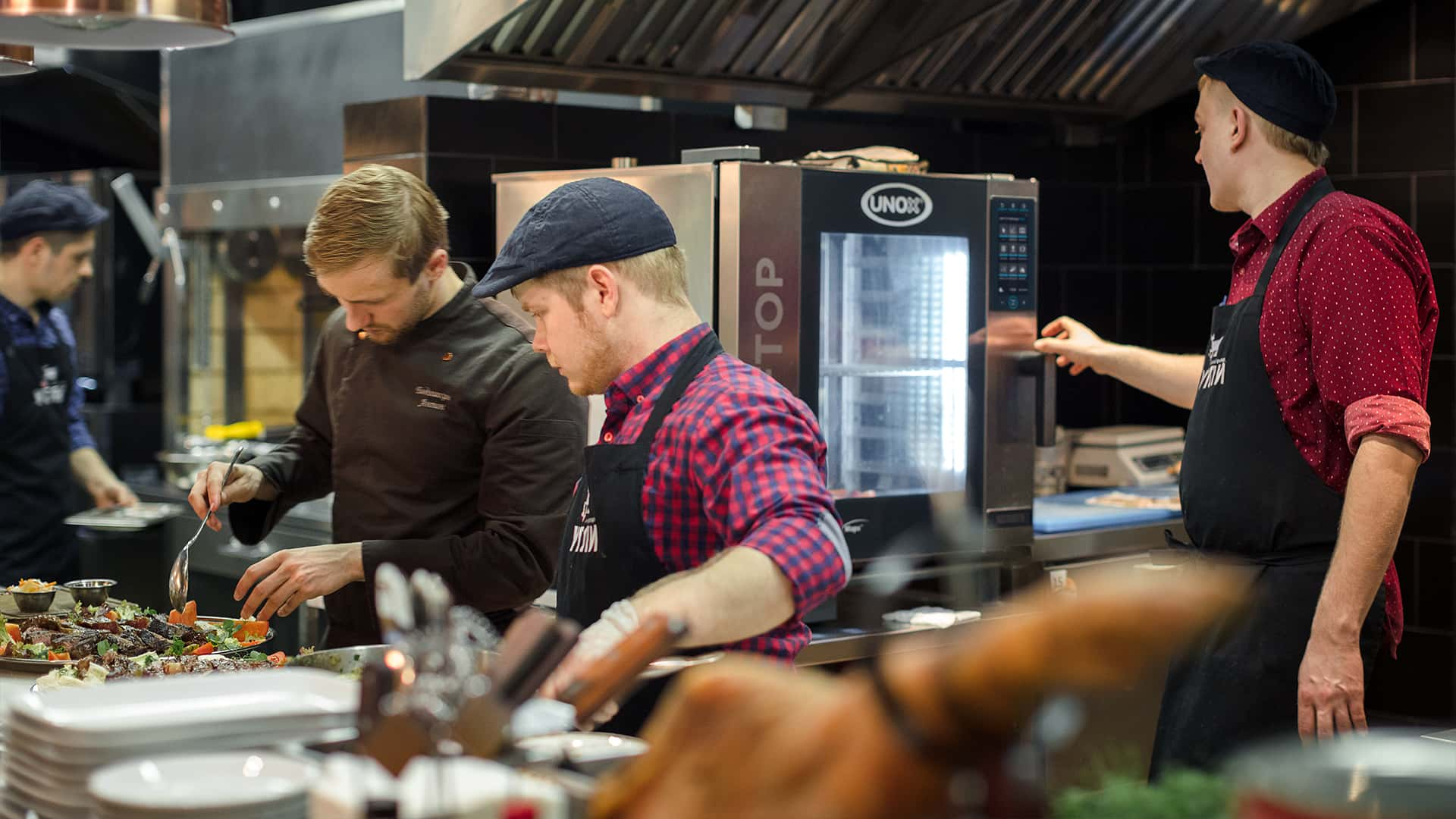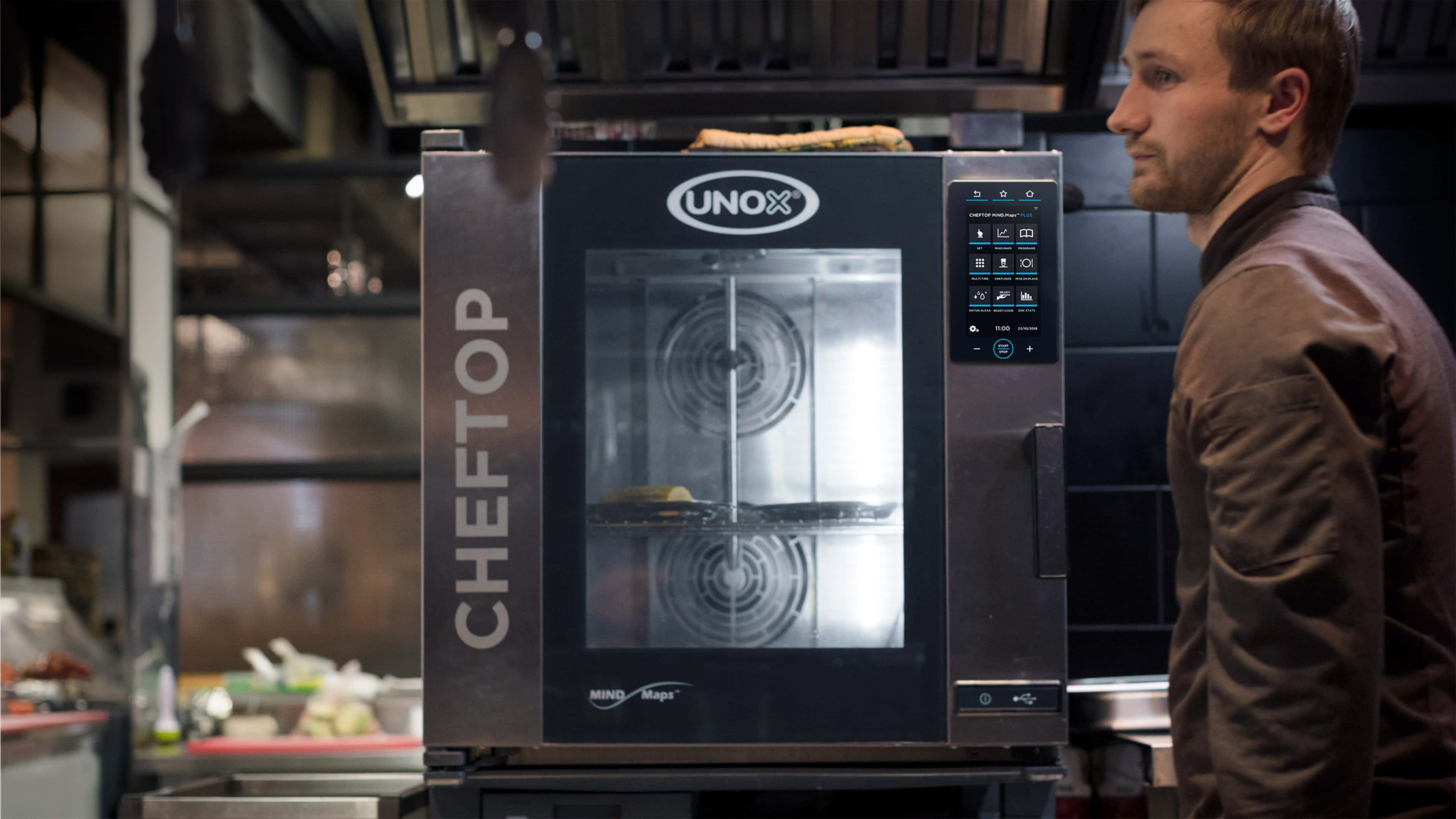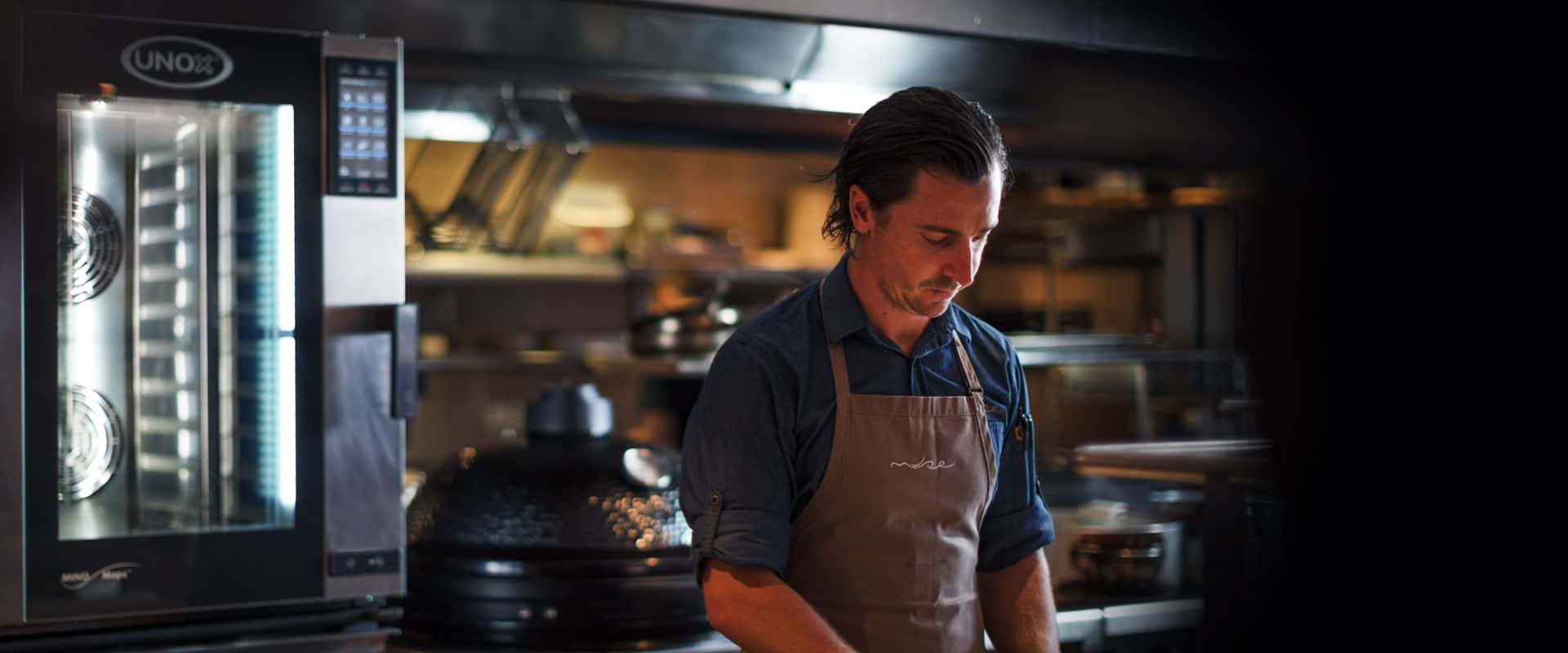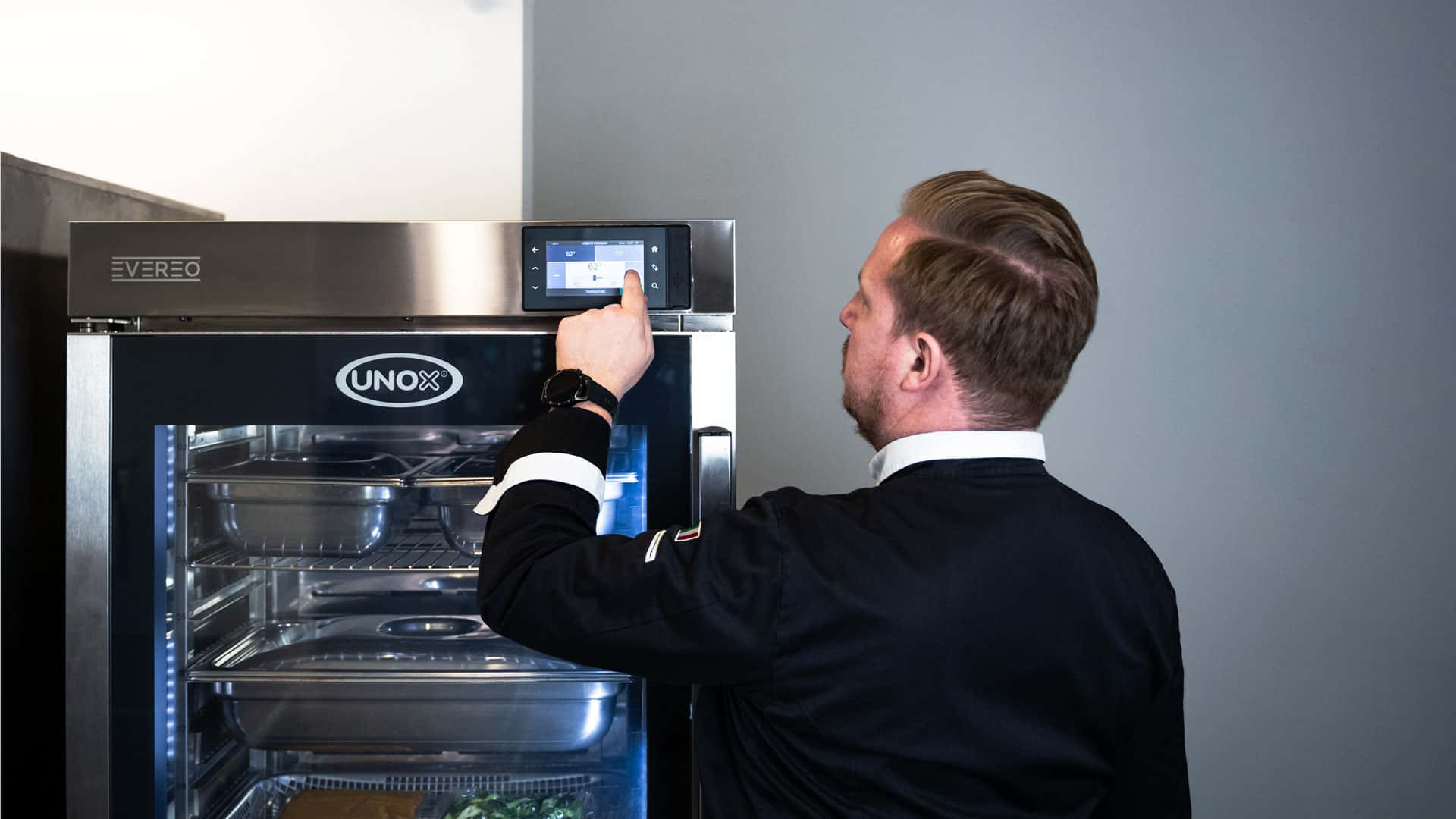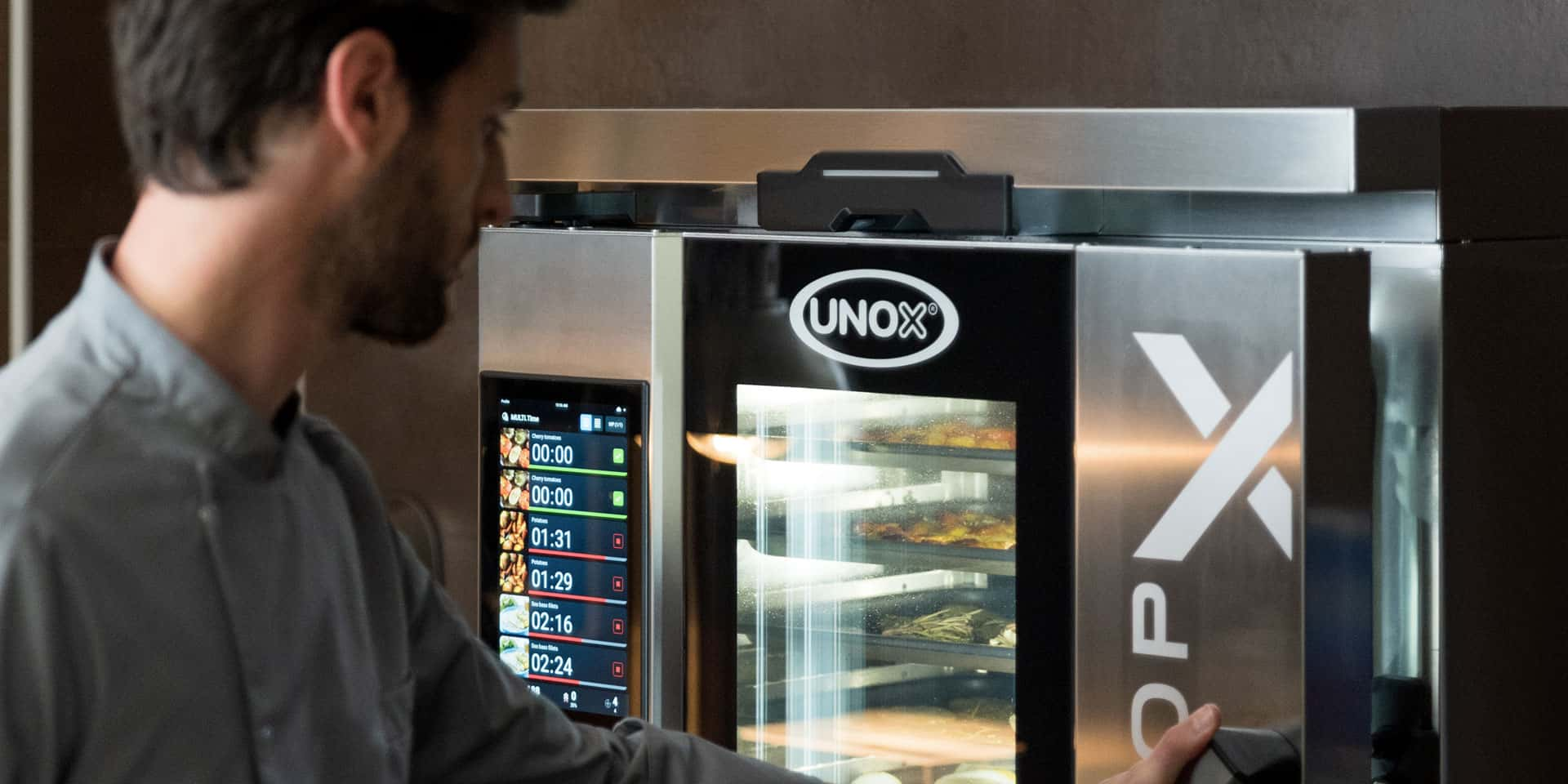1 - Offer a “sustainable” menu to your customers
2 - Sustainable lighting
3 - Reduce food waste
According to the "World Wildlife Fund", food waste contributes to almost 10% of the world's Co2 emissions and, according to "Feeding America", 40% of food waste comes from restaurants, workshops, grocery shops and food companies. Minimising these types of waste often seems a difficult task: but what if it were possible to reduce this waste to zero? Thanks to innovative "hot preservation" technologies, your preparations can now be preserved for up to 3 days at serving temperature without compromising taste and appearance. Serve tomorrow what is not sold today, eliminating waste and increasing profits.
Want to know more? Discover EVEREO®, the first and only "hot fridge".
4– Work with energy-efficient appliances and reduce energy waste
Approximately 73% of gas consumption comes from cooking and more than half of the electricity used in restaurants and workshops comes from cooking and refrigeration, essential components that you cannot do without but which you can manage efficiently with intelligent appliances. Taking advantage of EVEREO®'s innovative "hot preservation" technology and investing in the purchase of efficient ENERGY STAR®-certified appliances (such as the CHEFTOP MIND.Maps™ PLUS combi-oven), it is possible to reduce energy consumption without compromising on the quality of dishes.
When thinking about reducing energy consumption, one might believe that using pots, pans and grills means less consumption when compared to using ovens and other professional appliances. In fact, the use of professional ENERGY STAR® appliances helps reduce heat loss, which results in less energy being wasted than with hob cooking.
Find out how an ENERGY STAR® oven can help you save money in your restaurant or workshop:
5- Harness the power of technology for sustainable cooking
As the digital age advances, new technologies are being invented and updated every day. These include software, algorithms and devices that could perfect cooking processes and optimise the efforts of different activities to ensure more sustainable behaviours.
Using tools that allow to monitor consumption and improve performance in the kitchen or workshop can be a key aspect in reducing costs and the impact in terms of Co2 produced in the environment.
An example of this is the CLIMALUX™ technology of UNOX smart ovens, which uses specific algorithms to reduce water and energy waste through perfect control of humidity levels in the oven cooking chamber.
On the other hand, thanks to the SMART.Preheating feature, the temperature and duration of preheating is automatically set by the oven to ensure the least amount of energy waste and the most repeatable result at every baking.
Discover all the UNOX intelligent technologies:
